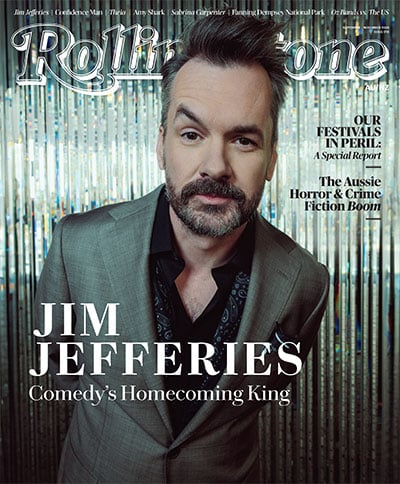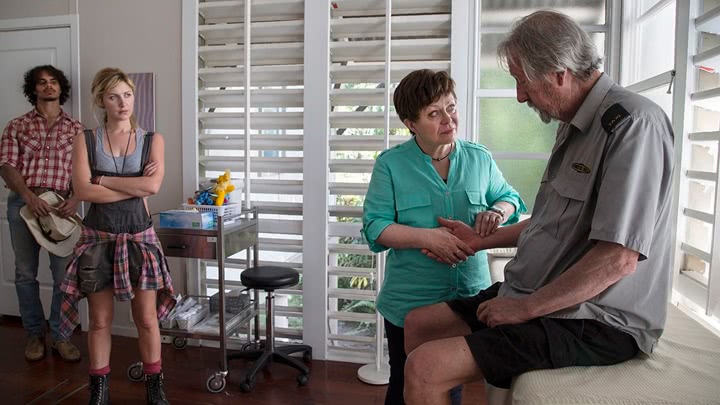Last Cab To Darwin is the second major Australian road movie to be released this year. Unlike Mad Max: Fury Road, where the world hinges on the instinct to survive, this drive through the desert is a subtle portrait of a man trying to die with dignity.
Michael Caton plays Rex Macrae, a blue-collar cab driver who has never left Broken Hill. Shortly after being diagnosed with terminal cancer, he catches wind of a Northern Territory doctor (Jackie Weaver) campaigning to legalise euthanasia. He resolves to journey to Darwin in order to end his life on his own terms. Leaving behind an occasional lover and long-term companion, Polly (Ningali Lawford-Wolf), Rex steps out of his small world and gains a few youthful companions who impart some belated life lessons.
“We had two weeks in Broken Hill and then travelled up to Darwin,” says director Jeremy Sims. “We shot the film in order, which is a real luxury in filmmaking. But it really does help the actors.”
Based on a play written by Reg Cribb, it took seven drafts and five years to bring the film to life. “It was a far more surreal stage production – it was a heightened reality rather than naturalism,” says Sims. “It was almost like a dream memory of a dead man, whereas the film is a much more visceral event taking place in the life of Rex Macrae. I have to stress that the film script was inspired by the play, it wasn’t a blueprint.”
Having rallied together an all-star cast of indigenous and non-indigenous actors, this is Sims’ third feature film. “I came to the business of directing films quite late,” he says. “It’s taking me a while to learn but I take it quite seriously. That’s what’s different about Last Cab To Darwin – it’s very highly structured. The engine within it is a tightly wound, three-act structure. I wanted to make something really creative and disciplined at the same time.”
Reciprocal love is one idea the film handles sensitively throughout. “Rex’s journey becomes one of being taught love and acceptance by other people late in his life,” says Sims. “The great thing about discovering he’s dying is that it opens up that window for him. That was a very profound thing I wanted to capture.”
The film broaches the topic of Aussie mateship; that bandied-about term often inserted into advertising or hijacked for jingoistic purposes. “When a political party tells you they’re going to bring in a whole raft of changes and blanket them under the phrase ‘have a go’, that kind of dumb anti-intellectual codswallop makes me furious,” Sims says. “And although there are good examples of mateship, I think Australian mateship is guilty when it turns human and nuanced issues into blokey slogans.
“In the film, Rex’s friends are more concerned about how his illness is going to disturb their drinking circle. They don’t want to muse on whether they’ve led good lives or not. Mateship at its worst is avoiding talking about things.”
Although the film doesn’t revolve around the issue of euthanasia, Sims aims to break down the simplistic nature of the debate. “For people who have been loved and have been happy, it seems like a no-brainer and I’m fully supportive of that,” he says. “However, in looking at the actual act of euthanasia and how it operates. You see that there are people who don’t know
Last Cab To Darwin (dir. Jeremy Sims) plays at State Theatre Saturday June 6 and Sunday June 7, as part of Sydney Film Festival 2015. and is also showing at Hayden Orpheum Cremorne on Sunday June 14

































